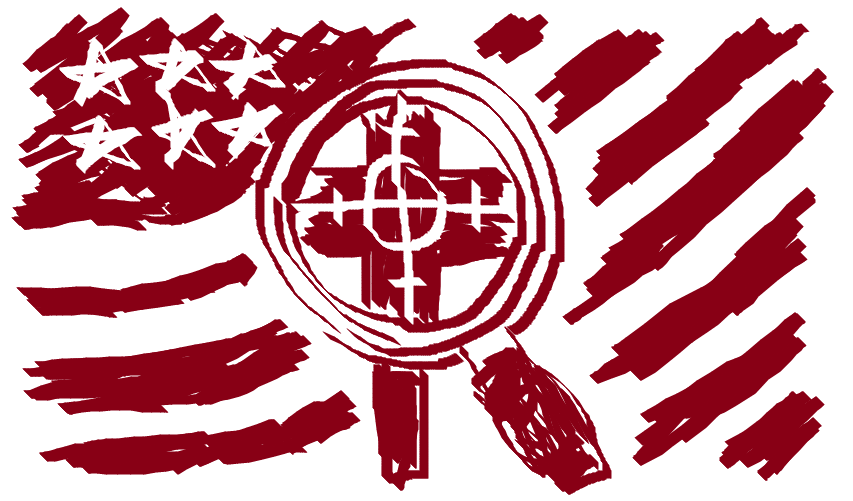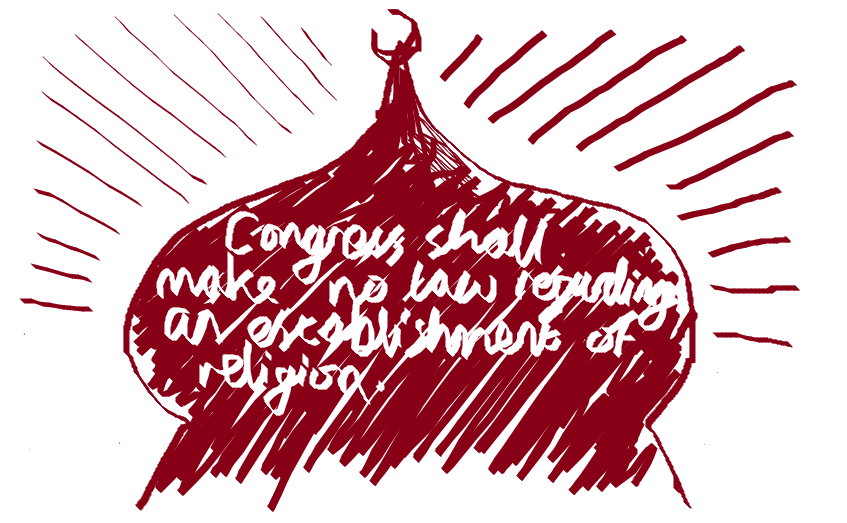
The illegal confiscation of all our email and phone call data by the US National Security Agency (NSA) isn’t just unconstitutional within the United States, but is a direct threat to the ability of religious traditions to continue. It is a type of desecration and a direct state invasion when used against churches, and so religious believers of all faiths should be opposing it fiercely.
I am not even speaking of the bugging of mosques or the intensive monitoring to which Muslims are subjected in the United States, but the extent to which Christians are also subjected to the same violation, and on a global scale. With NSA eyes now watching inside every religious organization and intercepting everything, the privacy and sanctity of those churches is being constantly and heavily disturbed by the US government. Such organizations are no longer capable of functioning according to the traditions they had managed to maintain for a thousand years.
Religious organizations, including the world’s most powerful church, the Roman Catholic Church, depend on a degree of privacy at the top of their organization. It is an essential part of these organizations, maintaining the confidence of believers. More than that, for Catholics, that secrecy is about maintaining tradition. A religious tradition that fails to defend itself in court might as well have ceased to exist.
By spying on such tradition-bound organizations aggressively, the National Security Agency blatantly violates the separation of church and state. An offense that could be challenged in the highest courts in the land by the most wealthy and influential churches, not just in the US but in other countries too.
By spying on the secret machinations of succession within the Roman Catholic Church, as they got away with in 2013, the National Security Agency essentially invaded the Vatican and raided the Church for its most sensitive materials. This is not only aggression at a diplomatic, military, political level but it is an act of desecration and an attack on all Catholics. It is no different than if a group of armed thugs had literally stomped into the Vatican and had taken this content by force from the Church. How would the Catholics of the world view the United States if such an event were to occur? And yet it did.
Not just the current Pope, but all Catholics, should be deeply offended by the way that the NSA violated the separation of church and state and meddled in the inner workings of their faith. They should be fighting to get back their constitutionally guaranteed right to not have their religion invaded and spied on by the state.
Churches need the protection of the law to shield themselves against the intrusions of an ever-expanding surveillance state that can’t resist plugging its machinery into everyone. The Roman Catholic Church isn’t the only organization that claims to offer some confidentiality to its members and its clergy. Other organizations, including the much newer Church of Scientology, also place emphasis on confidential content that is not meant to be promiscuously raided and read by government lackeys simply because they can.
In my own view, as far as religious leaders need to be concerned, this problem has gotten out of control for two reasons.
First, separation of church and state is too often framed as a one-way street: the church has no right to meddle in state, the state has the right to meddle in church (to an extent this really started with the state figures trying to pressure churches to accept gay marriage when in fact it should be none of their business to alter a religion in this way). It is imbalanced and unjust to demand church accommodate state, but state not accommodate church.
If the NSA interferes in the Roman Catholic Church, the Roman Catholic Church shouldn’t shy away, thinking it can’t get involved in politics by fighting back. The NSA started it. They were the ones who broke the barrier, and the Catholic Church should feel entitled to retaliate politically when that occurs, demanding that the NSA respect the Church’s privacy and accusing the US government of direct repression and aggression against the Church.
Second, the political appeal of blaming certain religions and portraying them as quasi-states grabbing political power has grown among US politicians, especially on the right. Since any religion can be compared with a state or labelled a foreign enemy at particular epochs in history, these rightist politicians and pundits are now incapable of guaranteeing that the US will leave any religion in peace. Every church will have to watch the GOP Presidential candidates carefully. If they are willing to say a Muslim can’t be President or that Muslims aren’t Americans, tomorrow they may just as easily turn on Catholics or Jews and label them as the traitors with divided loyalties. The fact the NSA saw the need to spy on the Catholic Church suggests we may already be at that dangerous stage in the government itself.
These two pressures, from differing sides of the political spectrum, crush religious organizations’ legal protections and render them powerless in the face of growing state meddling inside them. Incapable of maintaining their traditions and the confidence of their adherents, they are perhaps now incapable of reacting even when the state tears down the wall of separation to attack them in front of everyone.


